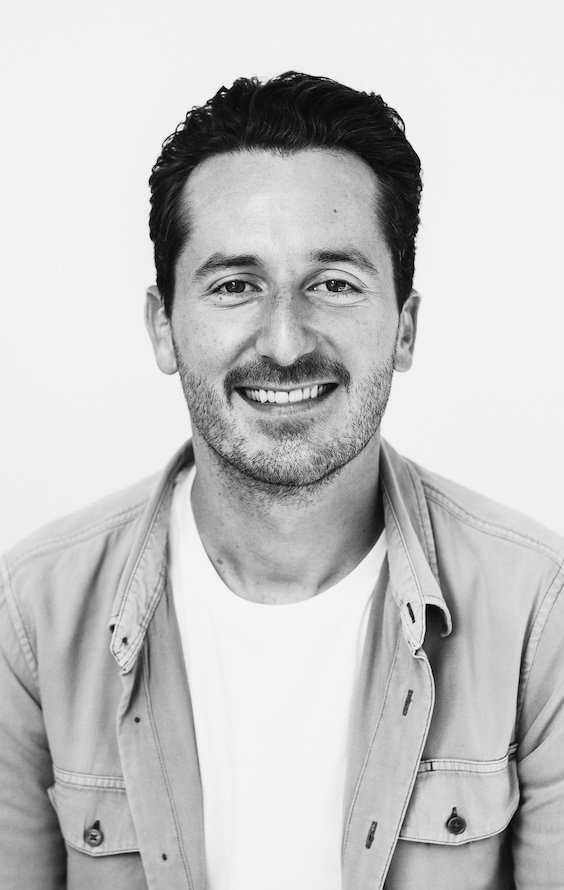Meet our Members: Travel Partner AMADI
Long Run Travel Partner AMADI creates conscious conservation-led safaris and journeys across Africa. It specialises in high-end adventures and safaris infused with multi-day conservation immersions. The AMADI team is spread between Zurich, London, and Cape Town. Here, we chat with Raphael Curiger, AMADI’s founder, about his mission, the future of travel, and joining The Long Run community.
What motivated you to join The Long Run?
The alignment of ethos. We vet all the destinations and places we send our guests to. The Long Run members certainly stood out to us, so it was a logical step to join the movement.
How are the 4Cs — Conservation, Community, Culture and Commerce — already embedded in your project?
We have taken the stance that everyone in the tourism chain needs to contribute – from the lodges, DMC, agents, consultants, and the press. Unless it is a combined effort, we will not be able to sustain these precious ecosystems. 1% of AMADI’s revenue is earmarked to flow into a handful of impact initiatives we partner with. One of them is The Olderkesi Community Wildlife Conservancy (initiated by Cottar’s Wildlife Trust). There, our funds are used to directly lease land from the community to compensate them for the opportunity cost to keep the land wild. In addition, we calculate and offset the carbon footprint for each of our trips, and we, as a company, are carbon-neutral certified.
What are you most proud of about your project?
To see the change in people. Both on the guest side as well as the communities in the destinations. That’s where it starts. If we can change people, nature will be protected as a result. The other way around, unfortunately, doesn’t work.
At The Long Run, we help businesses and organisations embed long-term thinking into everything they do. What is your biggest hope for the future of your project?
To touch more people with the work we do. I hope to grow my team organically with like-minded people and get the opportunity to work with more guests seeking the conservation-led experiences we offer. The ultimate is to contribute to the preservation of key wilderness ecosystems.
What do you look forward to most about being part of The Long Run community?
To connect with more people who share similar values and work towards the same goal.
Do you think the travel industry overall is changing for the better? How?
I’m not sure. It’s been interesting to see the direction the industry has been taking in the years of the post-pandemic era. We’ve witnessed the overdevelopment of tourism destinations again, which leaves ecosystems compromised. Without long-term development plans that pursue a low–volume and high-value strategy, I don’t see how we will be able to protect fragile ecosystems in the long run. There are some great examples across Africa, such as Botswana and Rwanda, that have been very successful. More destinations are talking about moving toward such a model; however, we have yet to see the actions.
Do you see greater awareness about conservation and sustainability in your destination/ region? Can you give a few examples?
Africa is known as the birthplace of eco-tourism, so there are lots of great examples. Over the past few years, we have certainly observed an increase in awareness about conservation and sustainability. For instance, lodges have started adding higher conservation levies, many have embraced new technologies to produce their own electricity from renewable energy sources, and on a more macro level, we saw Rwanda and Tanzania ban plastic bags.
What are the negatives/ challenges of tourism in your destination or globally that you most hope to tackle?
In the African context, I would like to ensure that the funds that flow into the destinations are channelled toward the operators who really are doing the hard work. Tourism can be very extractive, and I see it as our role to select and empower the right partners on the ground who contribute to the conservation of ecosystems, pay their staff fairly, and ensure that our guests can learn from that while they are there.
What still needs to be done to help travel regionally and globally to truly be a force for good?
I would say more transparency. On the macro level, this can mean a transparent tendering process for concessions and sites and on an operator level, this can mean transparency about where the funds go. Fogo Island Inn in Newfoundland offers a great approach through their Economic Nutrition Certification Mark, which creates transparency around where the funds go and what jurisdictions benefit.
Lastly, how does AMADI help travellers to have a positive impact?
Firstly, it’s about how we design the trips and where we send our guests. This alone allows guests to have a positive impact. Secondly, we often weave philanthropic experiences into our itineraries, which empowers guests to do good. Lastly, we connect guests with conservation and community organisations that we know so that they can get involved on a deeper level.
If you’re interested about finding out more about Travel Partner membership at The Long Run, please contact info@thelongrun.com
About Raphael Curiger, AMADI, Founder
Raphael has been exploring Africa for the last 30 years, which has forged a deep connection with the continent. Before fully dedicating his time to contributing to a more sustainable travel industry, he spent a number of years as an officer in a reconnaissance unit of the Swiss Army and at a leading strategy consulting firm. Driven by a passion for entrepreneurship, travel, and conservation, he has launched several ventures in the sustainable travel space. With AMADI, Raphael works to inspire travellers and industry players to embrace a more conscious way of travelling.

